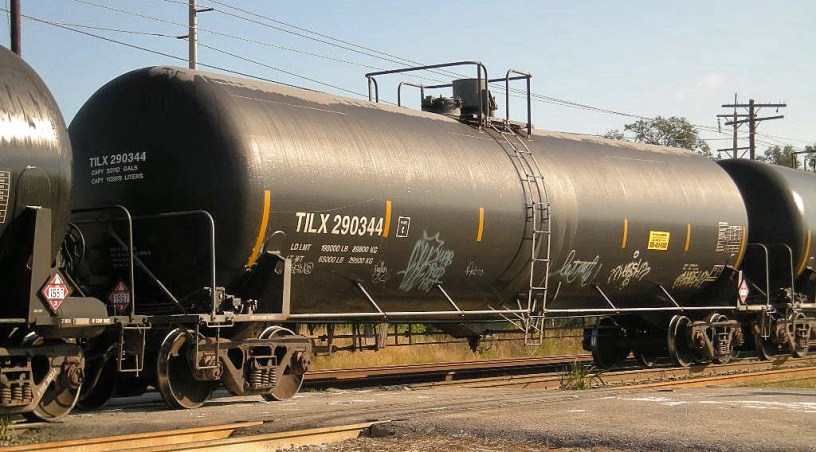Environmentalists block the construction of pipelines to transport fossil fuels, so oil and gas companies resort to other means (such as rail, truck, or ship). Transporting fossil fuels by pipelines involve far less carbon emissions and hazards than by road, train, or sea. But that is the whole point. It enables Gang Green to measure truck or ship carbon output including rail volume to later make the case to governments to enact more rules or even sue which, in turn, shuts fossil fuel transport methods down. Oppositon to transporting fossil fuels by rail has started up again in Pennsylvania which is has a burgeoning fracking industry since the commonwealth has large natural gas deposits.
Environmentalists Decry ‘Untested’ Rail Transport of LNG Through Philly
by Jessica Howley, October 14, 2020, InsideSources
A planned liquid natural gas facility outside of Philadelphia, has drawn the ire of environmentalists concerned about “bomb trains” traveling through the city.
The Gibbstown Logistics Center in Gloucester County, N.J., will feature a $450 million private port primarily designed to export liquified natural gas (LNG) removed via fracking from Pennsylvania’s Marcellus Shale.
New Fortress Energy, the company behind the project, plans to build an LNG facility northwest of Scranton, Pennsylvania, and ship the commodity either by rail or trucks to Gibbstown where it will head overseas. The port will also be able to handle imported automobiles and can be a potential staging area for windfarms off the New Jersey shoreline.
In its filings for a rail permit, New Fortress said it would move several 100-car trains of LNG a day to Gibbstown to continuously fill waiting vessels — or up to 700 tractor-trailer trucks a day.
Government approvals for the project are nearly done.Although the Delaware River Basin Commission unanimously approved it last year, they voted last month to delay until at least early December voting on dredging permits recommended by a hearing examiner and staff. The project already has approvals from the New Jersey Department of Environmental Protection and the U.S. Army Corps of Engineers.
Still, local activists are fighting.
PHOTO CREDIT: Railroad tank car By Harvey Henkelmann, Attribution, https://commons.wikimedia.org/w/index.php?curid=5183586
